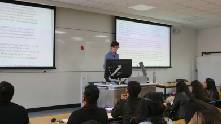If you’re grappling with slipping grades and feeling like no matter how hard you try, you can’t seem to get that academic boost you’re desperately aiming for, you’re not alone. Many students find themselves in this frustrating situation at some point. But don’t fret—there are effective strategies that can turn your struggles into successes. Let’s explore some actionable steps that can help you enhance your grades and overall academic experience.
1. Assess What’s Holding You Back
The first cardinal step is pinpointing the barriers. Is it a lack of understanding of the material, insufficient study time, or perhaps poor time management? Reflect on your habits, schedule, and past exams to identify patterns of difficulties.
2. Prioritize Your Health
Yes, your physical and mental health significantly impact your academic performance. Ensure you’re getting enough sleep, eating nutritiously, and engaging in regular physical activity. A healthy routine can sharpen your focus and aid memory retention.
3. Organize Your Time and Materials
Good organization is paramount. Create a study schedule that allows sufficient time for each subject. Employ planners or digital calendars to keep track of assignments and deadlines. That feeling of control over your time can greatly reduce academic stress.
4. Develop Effective Study Methods
Not all study methods are created equal, and what works for one person may not work for you. Explore different techniques like the Pomodoro Technique, mind mapping, or active recall. Once you find methods that click, make them a part of your study routine.
5. Attend All Classes and Participate Actively
This might seem obvious, but it’s easy to overlook the simplest ingredients for success. Being present in class and engaging with the material actively (ask questions, participate in discussions) enhances understanding and retention of information.
6. Seek Clarification
Never hesitate to ask for help. If you’re struggling with a concept, seek clarification immediately. Utilize your teachers’ office hours, get help from classmates, or consider a tutor if necessary.
7. Take Excellent Notes
Note-taking is a skill that can be honed. Develop a system that works for you, whether it’s the Cornell method, mind maps, or digital note-taking. Good notes can be a lifeline when preparing for exams or completing assignments.
8. Work With Study Groups
Study groups can be a double-edged sword, so choose your group wisely. The right group can provide motivation, diverse perspectives, and mutual support. Having people to discuss and debate topics with can deeply engrain the knowledge.
9. Improve Test-Taking Strategies
Sometimes it’s not the content but the approach to exams that needs work. Practice past papers, understand the format of questions, and learn effective strategies to manage time during tests.
10. Manage Stress Properly
Stress and anxiety can impede your ability to perform academically. Learn stress management techniques such as meditation, deep breathing, or yoga to keep anxiety at bay and maintain a focused mind.
By implementing these strategies, you are not merely aiming to improve your grades momentarily, but you are also cultivating a robust foundation for lasting academic success and life-long learning. Remember, improvement takes time and perseverance. So, chin up, and set forth on your journey to turn those grades around and achieve the academic excellence that you are capable of!










